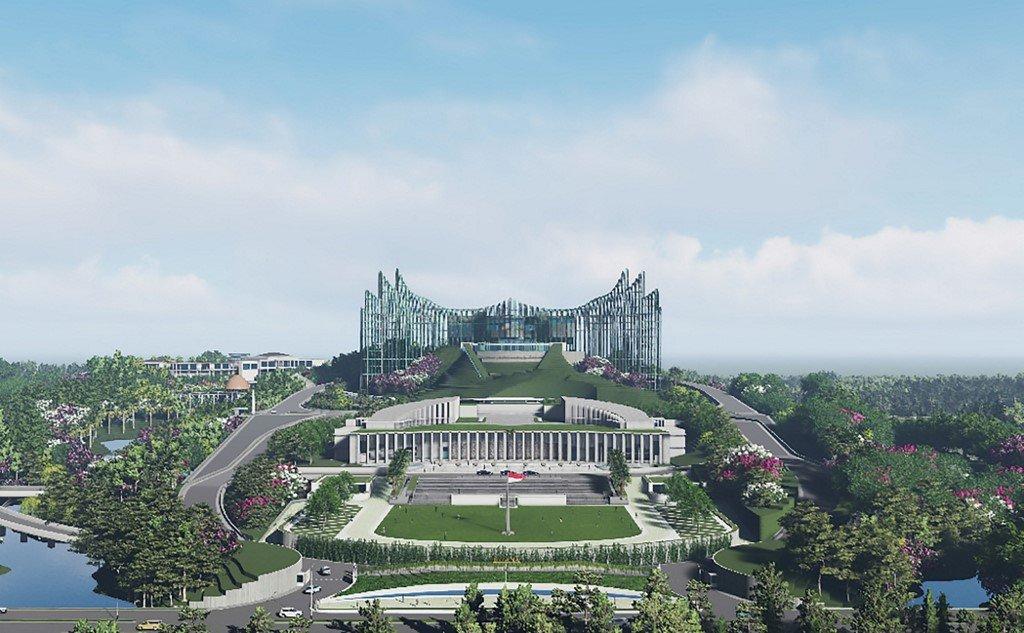Indonesia’s spanking new capital city and how it benefits Sarawak
From residential development to the provision of building materials and even electricity, the shift from Jakarta to Nusantara is expected to bring good news for Sarawak.
Just In
Industry players in Sarawak have welcomed the most recent developments in the relocation of Indonesia’s capital from Jakarta, saying the shift to a new site in the East Kalimantan province on Borneo island will boost residential investments in the state.
The plan to relocate the capital city away from Jakarta, a megacity of 10 million people that has suffered from chronic congestion, floods and air pollution, was first announced in 2019.
Indonesia President Joko Widodo last week confirmed that the new capital would be named Nusantara, which means archipelago.
The 466 trillion rupiah (RM134 billion) city is expected to be completed in 2024, after delays due to the Covid-19 pandemic.
Sarawak Tourism, Creative Industry and Performing Arts Minister Abdul Karim Rahman Hamzah told MalaysiaNow that the state had long planned to set up a trade and tourism office in Pontianak, located in West Kalimantan.
“If it weren’t for the Covid-19 pandemic, our plan to set up an office there would have taken off,” he said.
“I believe that after the pandemic situation subsides, we will be able to start.”
Given that Nusantara will be established in Kalimantan, he said, it was crucial for Sarawak to have a trade office in the vicinity to help it leverage the state’s position in the global expert market.
Work to establish Sarawak’s position in the global market has been ongoing for three years now, since the inception of the Sarawak Trade and Tourism Office Singapore or Statos in 2019.
The Sarawak Housing and Real Estate Developers’ Association (Sheda) said the shift of capital from Jakarta to Nusantara was a positive development for the industry.
And having a trade centre in Pontianak will lend strength to efforts to penetrate the regional market while promoting S-MM2H, the Malaysia My Second Home programme in Sarawak, it said.
It said Indonesia’s plan to move its administrative centre to East Kalimantan would require the construction of new government homes and offices for about 1.5 million civil servants in Kutai Kartanegara and North Penajam Paser, which is already home to some 900,000 people.
Sheda chairman Sim Kiang Chiok said this might help attract more students to Sarawak.
“With the revised S-MM2H programme, we might see some demand for homes here in the state,” he told MalaysiaNow.
There is also the possibility of a boost in medical tourism as many cities in Indonesia still lack a medical infrastructure.
But this would depend on connectivity, and an even pace of development in Sarawak as well as Nusantara.
Chiok said work to develop Nusantara would require a collaborative effort by all parts of the region.
“The shifting of Indonesia’s capital to Nusantara in the south of Borneo island will require more building materials, labour, machinery, food, services, transport and accommodation,” he said.
He also expects Sarawak to benefit from Indonesia’s plan to reduce its coal and gold mining activities in order to promote decarbonisation.
For the past three years, Sarawak has been venturing into hydrogen production and the construction of multi-fuel stations in major towns and highways.
“We can benefit by supplying Indonesia with our electricity and our expert services in hydro dam designing, construction and operation,” Chiok said, citing Sarawak’s Bakun, Murum and Baleh mega hydroelectric dams.
Indonesia has imported 100 to 120 megawatts of electricity from Sarawak since last year to meet the needs of border areas in West Kalimantan province.
The import of electrical power is based on a bilateral cooperation agreement between Indonesia’s state-owned electricity firm PT Perusahaan Listrik Negara and Sarawak Electricity Supply Corporation, a subsidiary of Sarawak Energy Bhd.
Subscribe to our newsletter
To be updated with all the latest news and analyses daily.
